Communication Poetry Quotes & Sayings
Enjoy reading and share 25 famous quotes about Communication Poetry with everyone.
Top Communication Poetry Quotes
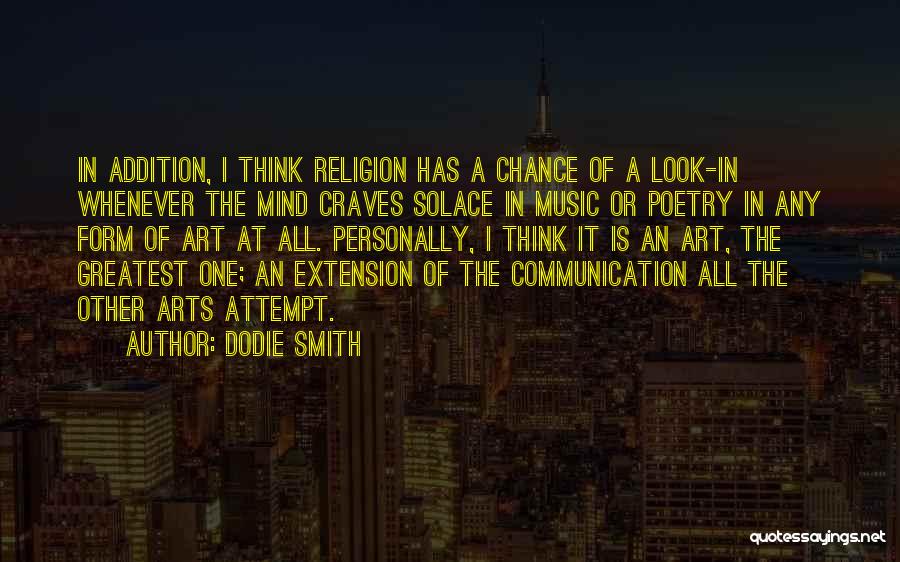
In addition, I think religion has a chance of a look-in whenever the mind craves solace in music or poetry
in any form of art at all. Personally, I think it is an art, the greatest one; an extension of the communication all the other arts attempt. — Dodie Smith
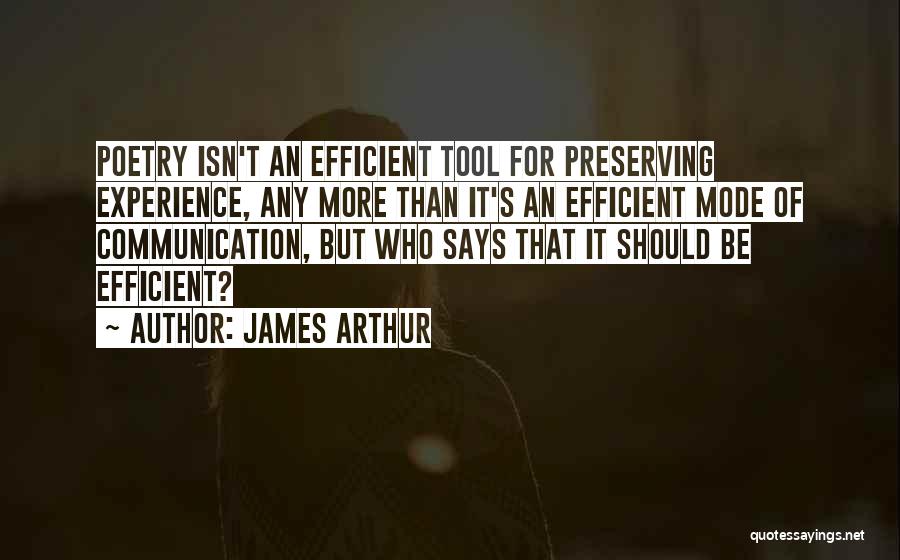
Poetry isn't an efficient tool for preserving experience, any more than it's an efficient mode of communication, but who says that it should be efficient? — James Arthur
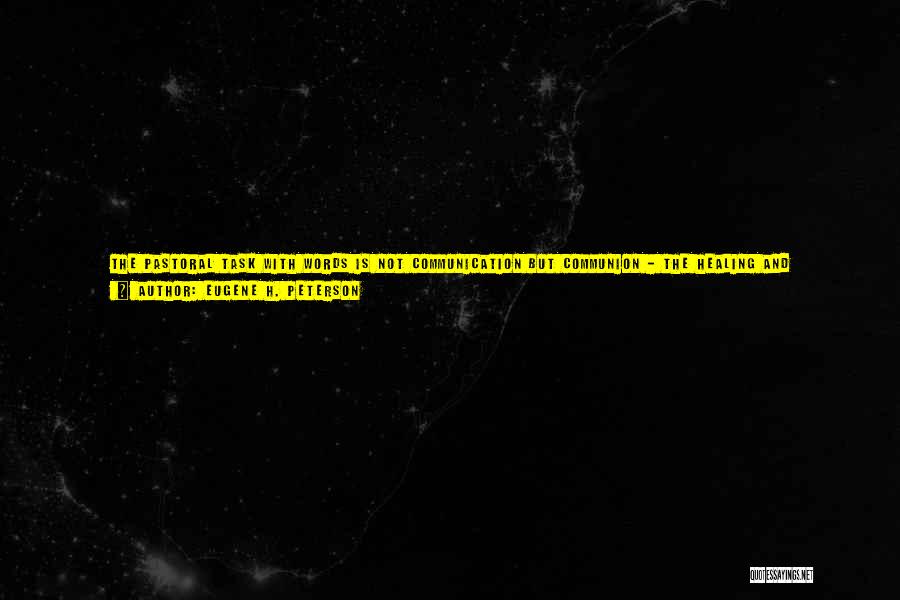
The pastoral task with words is not communication but communion - the healing and restoration and creation of love relationships between God and his fighting children and our fought-over creation. Poetry uses words in and for communion.
This is hard work and requires alertness. The language of our time is in terrible condition. It is used carelessly and cynically. Mostly it is a tool for propaganda, whether secular or religious. Every time badly used and abused language is carried by pastors into prayers and preaching and direction, the word of God is cheapened. We cannot use a bad means to a good end. — Eugene H. Peterson
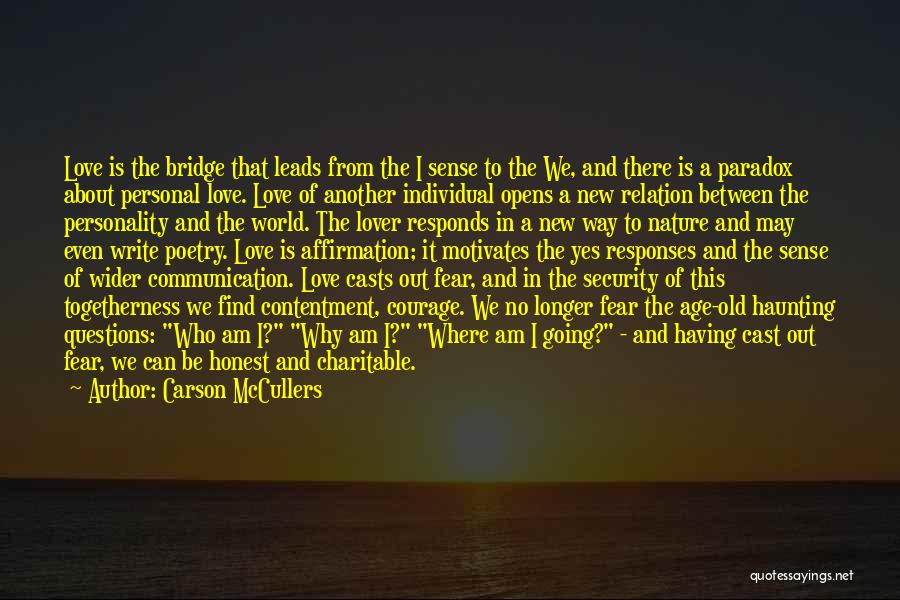
Love is the bridge that leads from the I sense to the We, and there is a paradox about personal love. Love of another individual opens a new relation between the personality and the world. The lover responds in a new way to nature and may even write poetry. Love is affirmation; it motivates the yes responses and the sense of wider communication. Love casts out fear, and in the security of this togetherness we find contentment, courage. We no longer fear the age-old haunting questions: "Who am I?" "Why am I?" "Where am I going?" - and having cast out fear, we can be honest and charitable. — Carson McCullers
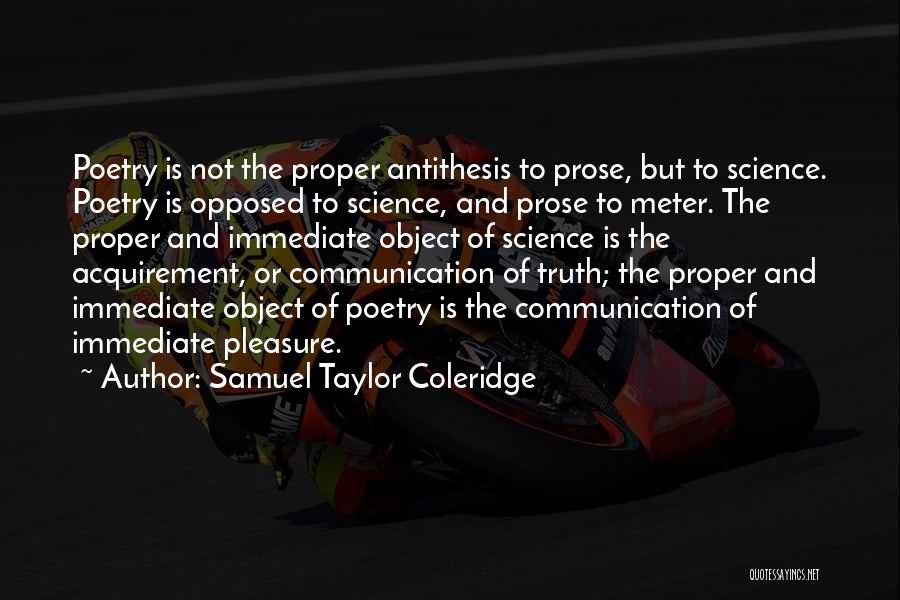
Poetry is not the proper antithesis to prose, but to science. Poetry is opposed to science, and prose to meter. The proper and immediate object of science is the acquirement, or communication of truth; the proper and immediate object of poetry is the communication of immediate pleasure. — Samuel Taylor Coleridge
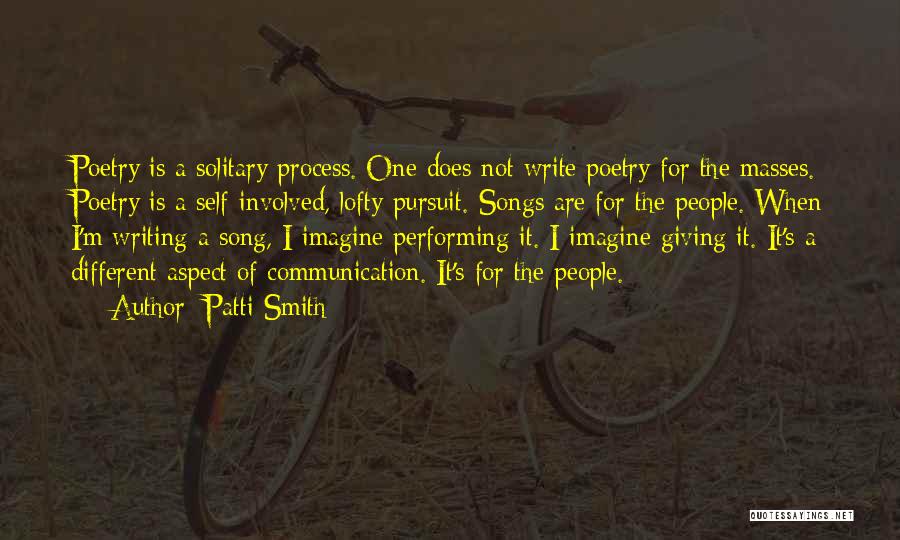
Poetry is a solitary process. One does not write poetry for the masses. Poetry is a self-involved, lofty pursuit. Songs are for the people. When I'm writing a song, I imagine performing it. I imagine giving it. It's a different aspect of communication. It's for the people. — Patti Smith
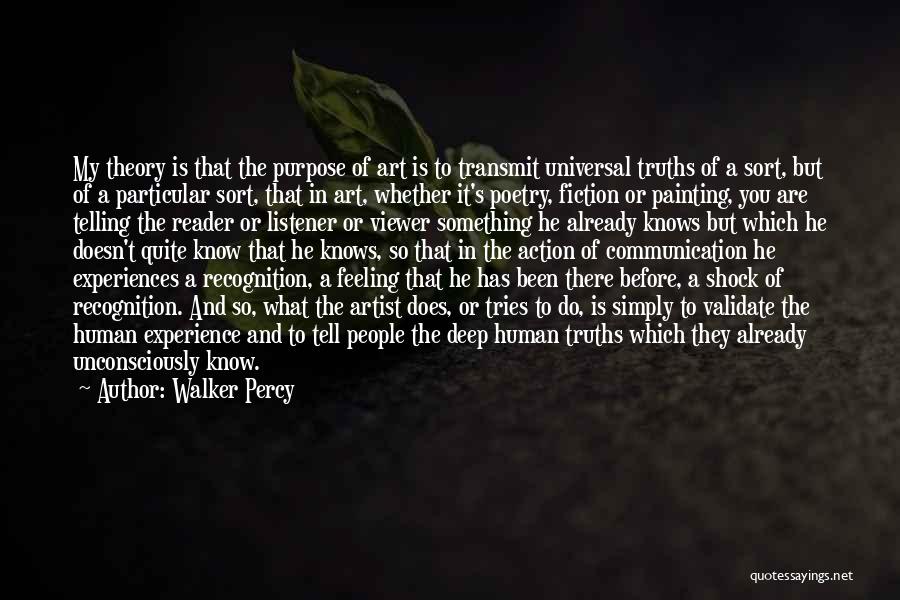
My theory is that the purpose of art is to transmit universal truths of a sort, but of a particular sort, that in art, whether it's poetry, fiction or painting, you are telling the reader or listener or viewer something he already knows but which he doesn't quite know that he knows, so that in the action of communication he experiences a recognition, a feeling that he has been there before, a shock of recognition. And so, what the artist does, or tries to do, is simply to validate the human experience and to tell people the deep human truths which they already unconsciously know. — Walker Percy
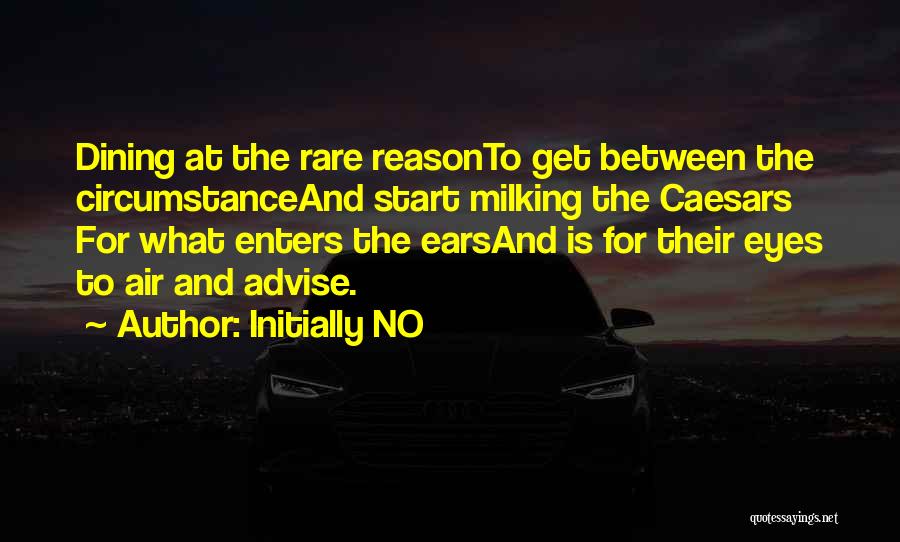
Dining at the rare reason
To get between the circumstance
And start milking the Caesars
For what enters the ears
And is for their eyes to air and advise. — Initially NO

Never worry about the reader, what the reader can understand. When you are writing, glance over your shoulder, and you'll find there is no reader. Just you and the page. Feel lonely? Good! Assuming you can write clear English (or Norwegian) sentences, give up all worry about communication. If you want to communicate, use the telephone.
To write a poem you have to have a streak of arrogance ( ... ) when you are writing you must assume that the next thing you put down belongs not for reasons of logic, good sense, or narrative development, but because you put it there. You, the same person who said that, also said this. The adhesive force is your way of writing, not sensible connection. — Richard Hugo
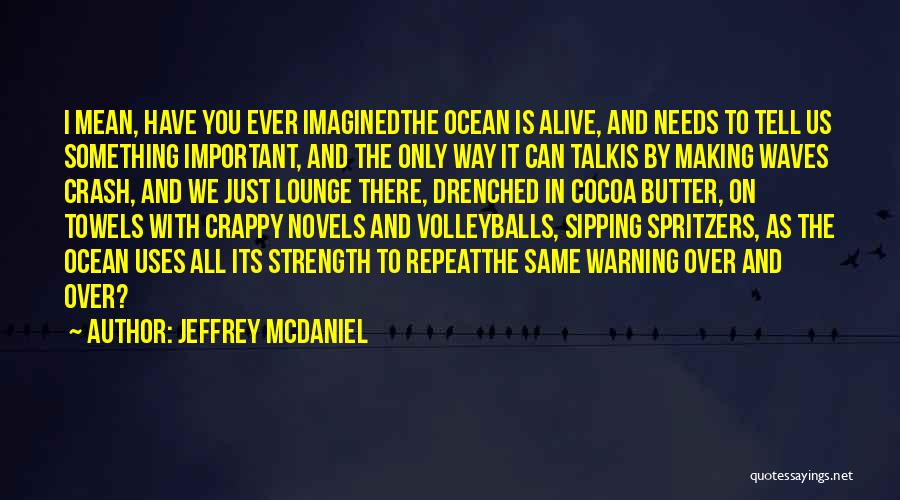
I mean, have you ever imagined
the ocean is alive, and needs to tell us something important, and the only way it can talk
is by making waves crash, and we just lounge there, drenched in cocoa butter, on towels
with crappy novels and volleyballs, sipping spritzers, as the ocean uses all its strength to repeat
the same warning over and over? — Jeffrey McDaniel
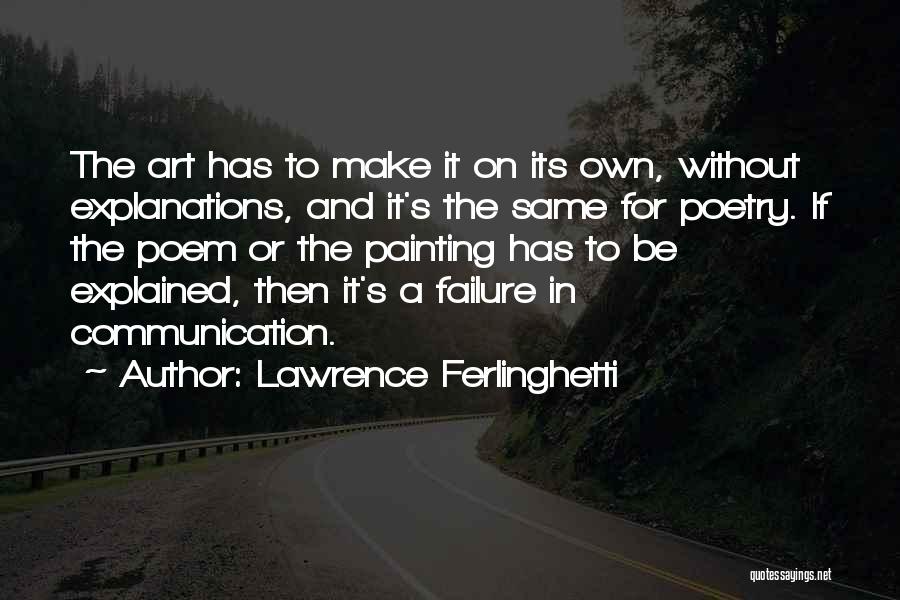
The art has to make it on its own, without explanations, and it's the same for poetry. If the poem or the painting has to be explained, then it's a failure in communication. — Lawrence Ferlinghetti
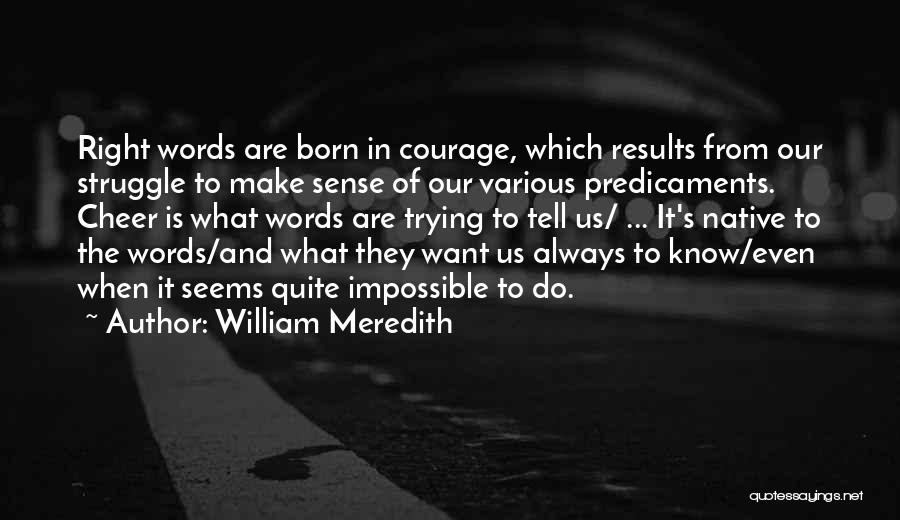
Right words are born in courage, which results from our struggle to make sense of our various predicaments. Cheer is what words are trying to tell us/ ... It's native to the words/and what they want us always to know/even when it seems quite impossible to do. — William Meredith
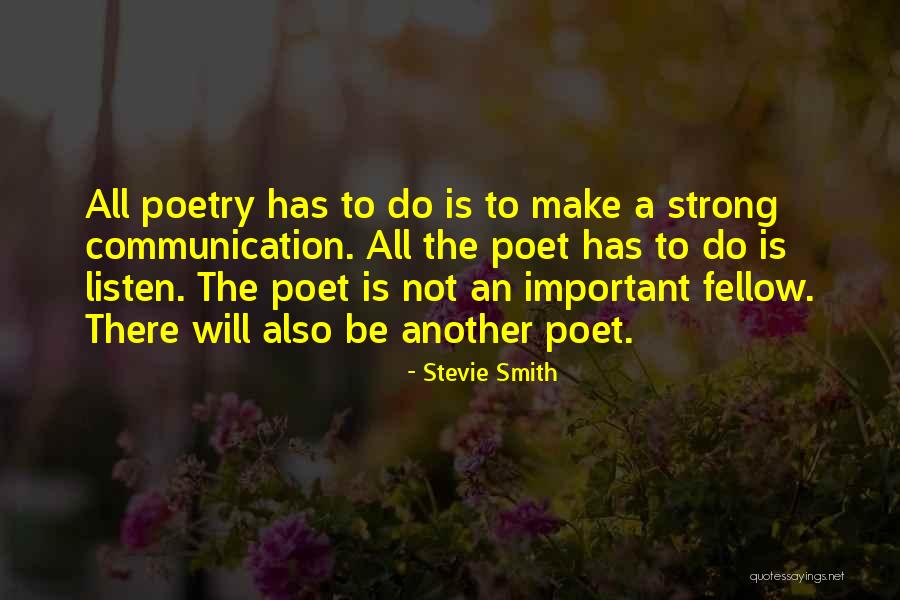
All poetry has to do is to make a strong communication. All the poet has to do is listen. The poet is not an important fellow. There will also be another poet. — Stevie Smith
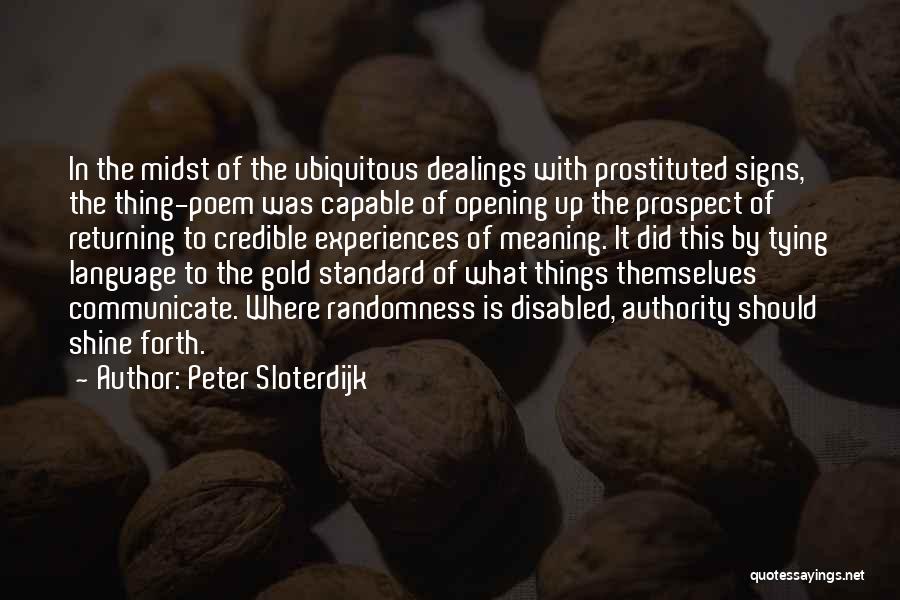
In the midst of the ubiquitous dealings with prostituted signs, the thing-poem was capable of opening up the prospect of returning to credible experiences of meaning. It did this by tying language to the gold standard of what things themselves communicate. Where randomness is disabled, authority should shine forth. — Peter Sloterdijk
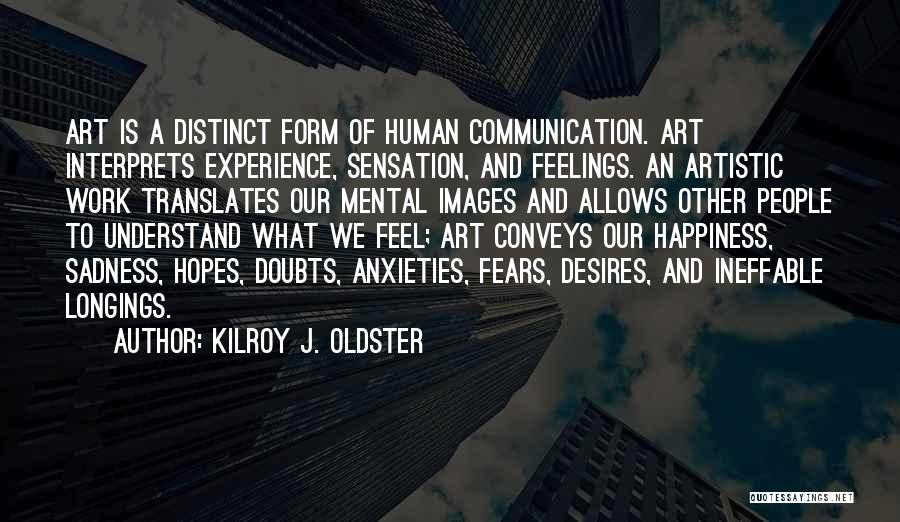
Art is a distinct form of human communication. Art interprets experience, sensation, and feelings. An artistic work translates our mental images and allows other people to understand what we feel; art conveys our happiness, sadness, hopes, doubts, anxieties, fears, desires, and ineffable longings. — Kilroy J. Oldster
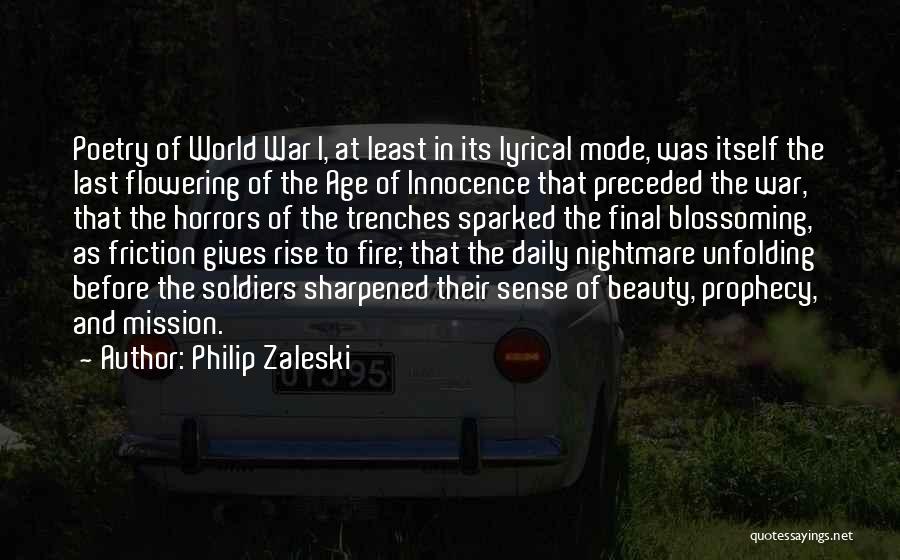
Poetry of World War I, at least in its lyrical mode, was itself the last flowering of the Age of Innocence that preceded the war, that the horrors of the trenches sparked the final blossoming, as friction gives rise to fire; that the daily nightmare unfolding before the soldiers sharpened their sense of beauty, prophecy, and mission. — Philip Zaleski
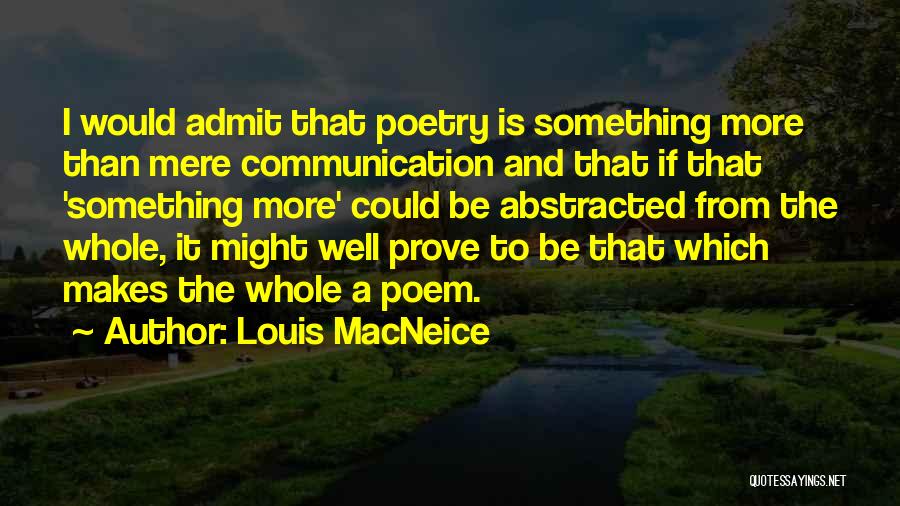
I would admit that poetry is something more than mere communication and that if that 'something more' could be abstracted from the whole, it might well prove to be that which makes the whole a poem. — Louis MacNeice

Poetry is simply the most beautiful, impressive, and widely effective mode of saying things. — Matthew Arnold
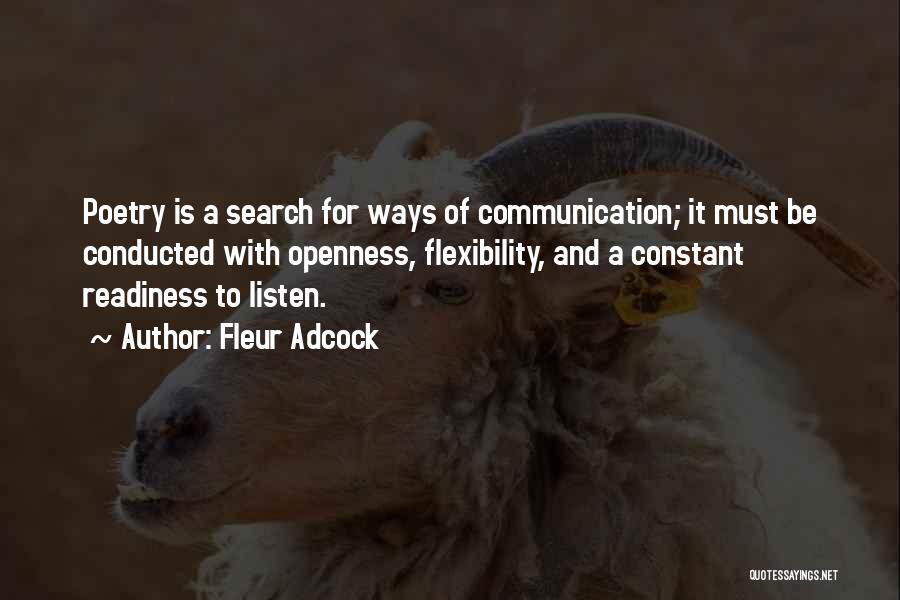
Poetry is a search for ways of communication; it must be conducted with openness, flexibility, and a constant readiness to listen. — Fleur Adcock
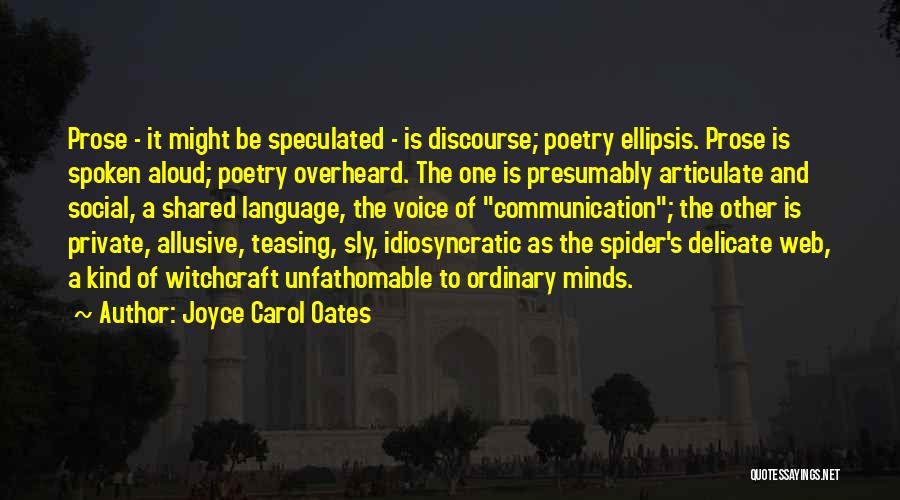
Prose - it might be speculated - is discourse; poetry ellipsis. Prose is spoken aloud; poetry overheard. The one is presumably articulate and social, a shared language, the voice of "communication"; the other is private, allusive, teasing, sly, idiosyncratic as the spider's delicate web, a kind of witchcraft unfathomable to ordinary minds. — Joyce Carol Oates

If I knew how to say it directly, I would not need to write poetry. I would just talk to people and be happy. — Selima Hill
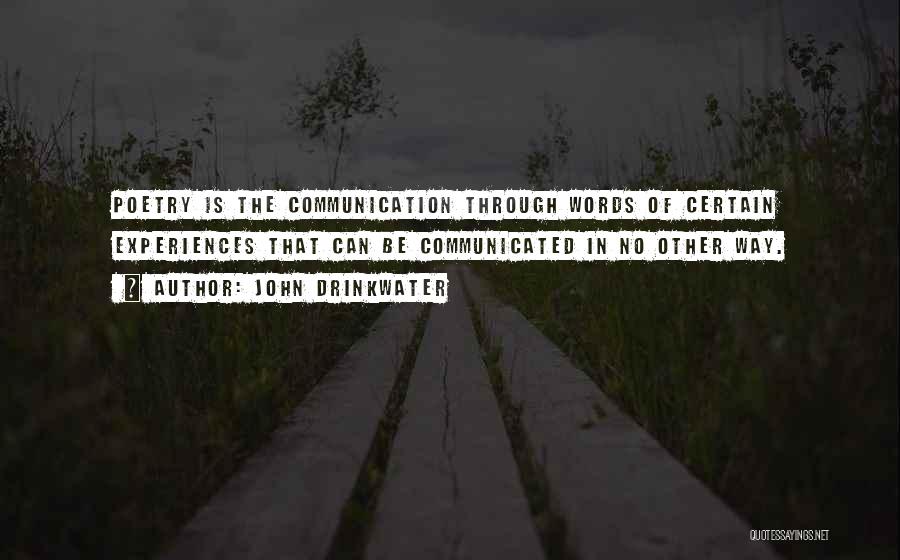
Poetry is the communication through words of certain experiences that can be communicated in no other way. — John Drinkwater
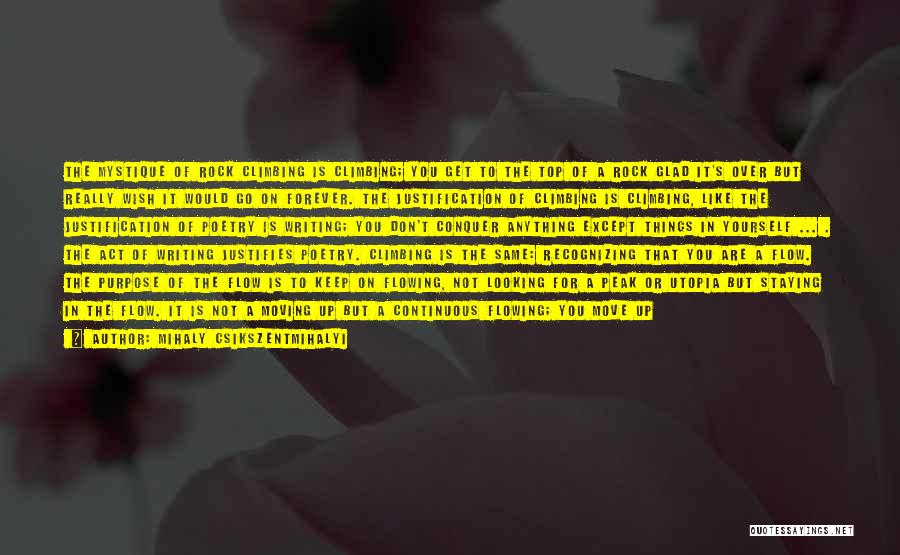
The mystique of rock climbing is climbing; you get to the top of a rock glad it's over but really wish it would go on forever. The justification of climbing is climbing, like the justification of poetry is writing; you don't conquer anything except things in yourself ... . The act of writing justifies poetry. Climbing is the same: recognizing that you are a flow. The purpose of the flow is to keep on flowing, not looking for a peak or utopia but staying in the flow. It is not a moving up but a continuous flowing; you move up to keep the flow going. There is no possible reason for climbing except the climbing itself; it is a self-communication. — Mihaly Csikszentmihalyi
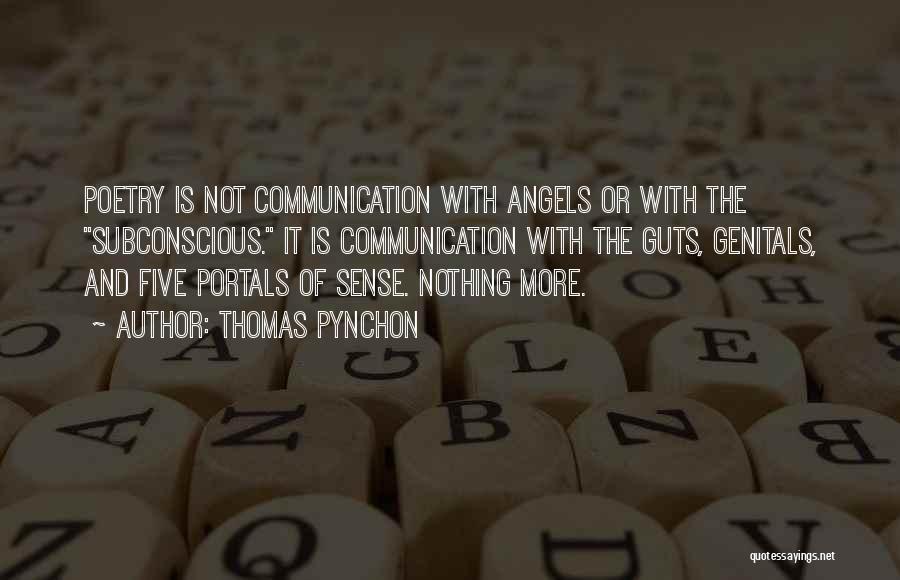
Poetry is not communication with angels or with the "subconscious." It is communication with the guts, genitals, and five portals of sense. Nothing more. — Thomas Pynchon
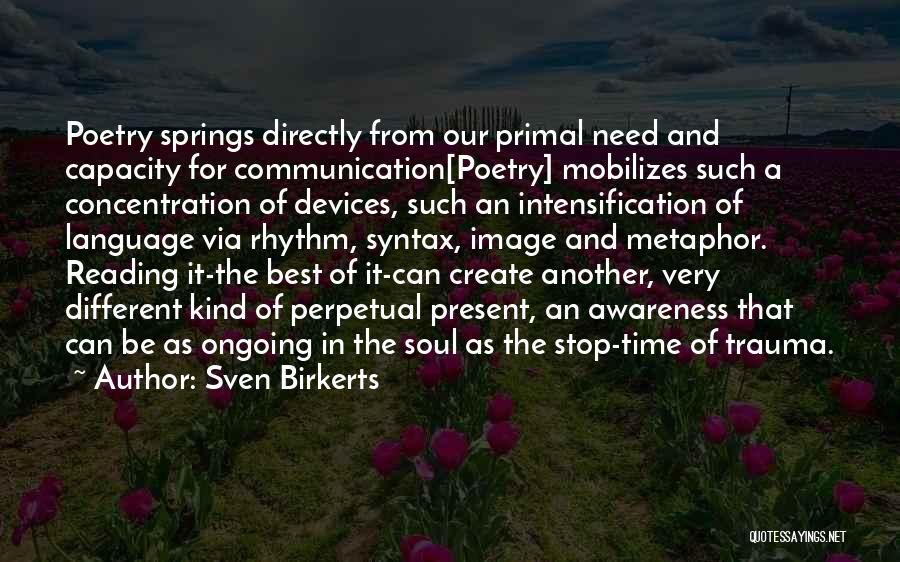
Poetry springs directly from our primal need and capacity for communication[Poetry] mobilizes such a concentration of devices, such an intensification of language via rhythm, syntax, image and metaphor. Reading it-the best of it-can create another, very different kind of perpetual present, an awareness that can be as ongoing in the soul as the stop-time of trauma. — Sven Birkerts





